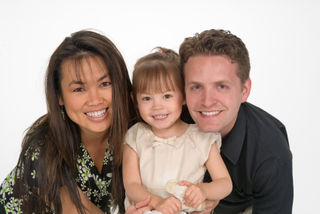Parenting
One Child: The New Traditional Family?
Large families, a thing of the past.
Posted May 22, 2008

Is having one child better than having two or four? It's a question that couples ponder as they begin to grow a family. Many have strong opinions based on experiences within their own family; others make child-bearing choices based on age-old stereotypes.
I have a singleton, one sibling, and raised four stepchildren in a first marriage so I'm objective when it comes to family size issues. However, when I had my singleton, family, friends, and random outsiders asked, "When are you having another?" The implication, whether stated or not, was that there is something wrong with only children or with parents who stop after having one child. I decided to find out what, and have spent more than 20 years studying only children and their parents.
This blog will explore everything only child-the decision to have, raise, and be an only child and what it means for parents, and only children as children and as adults. I thought a good place to begin was with a look at how many children people say they want and how many they actually have.
Only three percent of those polled by Gallup last year feel one child is ideal. Yet, according to the U.S. Census, the single child family is the fastest growing family unit. Why have singletons grown in popularity even when, on the surface, the prevailing preference is for more children?
Gallup has been asking people what they believe to be the best family size since 1936. From the mid-30s through 1967 between 61 and 77 percent of people preferred a family with three or more children. By 1973 the ideal family size dropped to two or fewer children. Today and since 1974 when the Gallup poll asked, "What is the ideal number of children for a family to have?" more than half of Americans, say a two-child family is best.
The explanation: Many people still believe that children without siblings are at a disadvantage. Yet the numbers (and facts) tell a different story. Just as during the Depression when the percentage of only children rose to 30, major metropolitan cities like New York are experiencing a similar upsurge. In the last 20 years the number of singletons has more than doubled to between 23 and 25 percent depending on where you live, one-child families often outnumbering families with two children.
The nuclear family with two children, a mom and dad is evaporating and having a singleton is increasingly common. Is one child the new traditional family? It's beginning to look that way in spite of the fact that so many cling to the belief that it's unfair to have one child. The advantages for a single child outweigh the few disadvantages. But, those feeling insecure about their decision wonder about the benefits and worry about all the negative traits with which singletons have been labeled for more than 100 years.
- Sign up for Dr. Newman’s Family Life Alert
- Follow Susan Newman on Twitter and Facebook
- Visit her website
- See Susan’s book: The Case for the Only Child: Your Essential Guide


